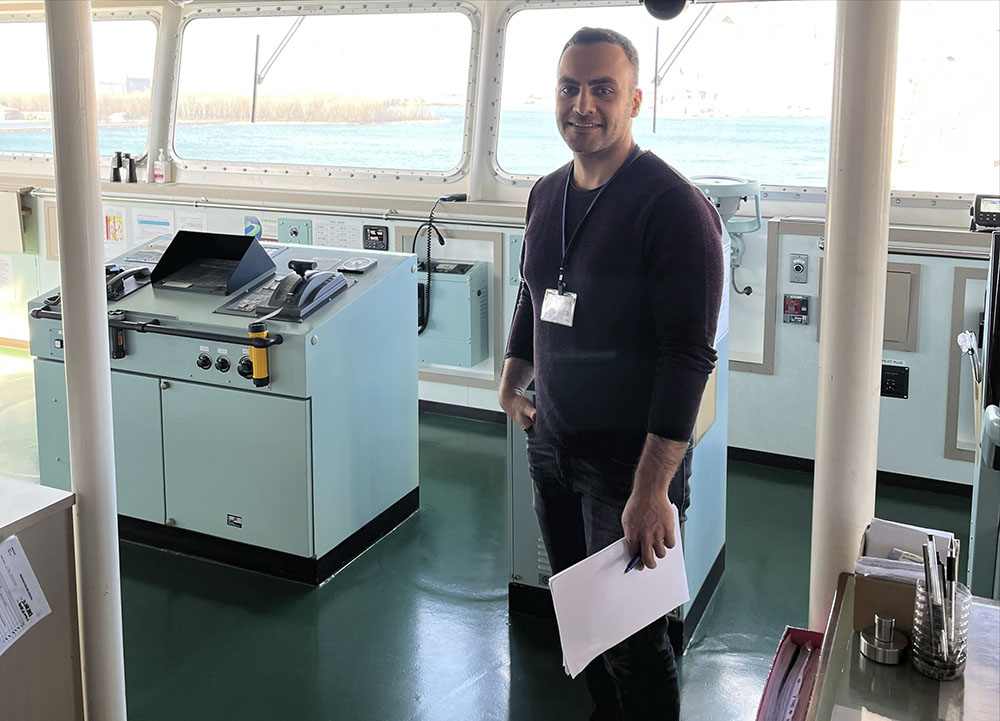Recently, our Fleet Performance Specialist, Faraz Eftekhar, embarked on a two-day visit aboard our 81,922 DWT Ultra Jaguar at Ghent port, Belgium, during its discharging operation. The visit fostered valuable knowledge sharing, promoting best practices to reduce fuel consumption and CO2 emissions for greener trade by providing feedback to the crew. This direct interaction allowed for the practical application of decarbonisation strategies right at the heart of operations, bridging the gap between theoretical planning and real-world execution.
The discussions covered various topics including:
Optimal running of auxiliary engines (AE) and boiler at sea and port: Exploring the necessity and implications of running dual AE and optimal running of the boiler.
Ballasting and deballasting: Understanding the process and optimal load plus running hours of ballast pumps.
Main Engine (ME) use during drifting: Guidelines for running the ME during drifting.
Optimal ballast draught calculation: Approving the method for calculating the optimal ballast draught.
Reducing hotel load during ship operation: Introducing a smart tech system to reduce the hotel load.
Slow steaming and mechanism of auxiliary blowers: Analysing factors affecting the minimum load of ME for slow steaming.
Use of Autolog sensors: Training on the use of Autolog sensors for daily noon reports.
Installation of Energy Saving Devices (ESDs): Installation of state-of-the-art technologies onboard for reducing CO2 emissions.
During this visit, Faraz and the crew engaged in valuable discussions about optimising machinery usage to reduce fuel consumption, thereby significantly contributing to CO2 reduction.
“With the introduction of new IMO strategies, advanced technologies, and mandatory reporting to curb CO2 emissions, it’s crucial to listen to the crew and provide feedback on their operations. They play vital roles in our decarbonisation strategy, especially considering the prevalence of traditional practices in sailing. As we navigate through new regulations and technologies aimed at enhancing fleet efficiency and decarbonisation, it’s imperative to implement change management strategies to maximise the benefits of these innovations. After all, the crew are the ones operating the ships,” Faraz emphasised.

